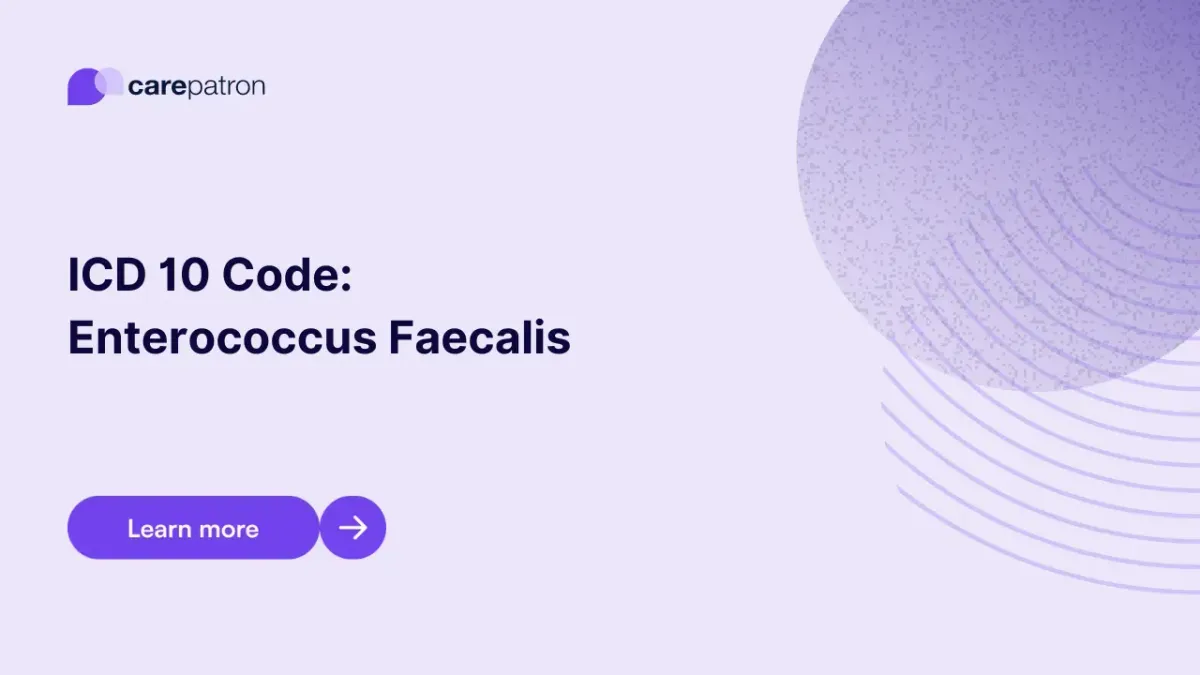
Enterococcus Faecalis ICD-10-CM Codes | 2023
Discover the essential ICD-10 codes for Enterococcus faecalis infections. Accurate coding for effective diagnosis and treatment.
Use Code
EHR and practice management software
Get started for free
*No credit card required
Free
$0/usd
Unlimited clients
Telehealth
1GB of storage
Client portal text
Automated billing and online payments
